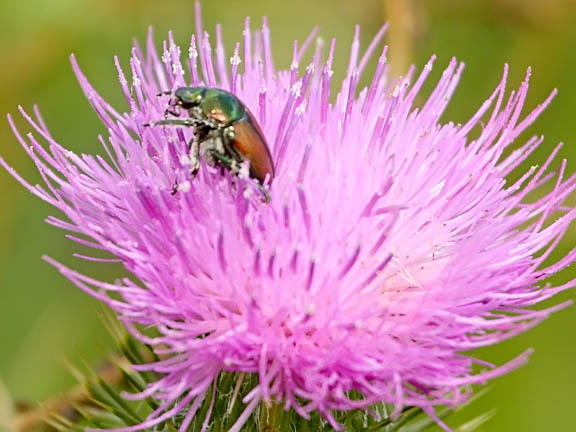by Mindy Hittle | Jan 11, 2013
By Mindy Hittle-McNair, Walton County Extension Agent There is a problematic winter annual found on bare-ground, along tree lines, and under fences. Urtica chamaedryoides commonly called fireweed, heartleaf nettle, weak nettle, or ortiguilla is a native Florida...
by Doug Mayo | Jan 4, 2013
Biology and Management of Bermudagrass Stem Maggot Webinar February 6 at 10 A.M. CST Bermudagrass stem maggot, a new invasive pest, has been found across much of the Southeast. First identified in Georgia in 2010, bermudagrass stem maggot is a pest that forage and...

by Libbie Johnson | Dec 7, 2012
Time for Thistle Control in Pastures Libbie Johnson, UF IFAS Escambia County Extension Most people do not scout pastures for weeds at this time of year, but this is prime time for thistles to start growing. The good news is the earlier you identify this weed and treat...
by Doug Mayo | Nov 30, 2012
Dennis Hancock, UGA Forage Extension Specialist How Late is Too Late? I’ve been getting a lot of calls about late planting of winter annual forages. Because of how extremely dry we are, many question the logic of planting when there is not enough moisture for...
by Les Harrison | Nov 21, 2012
Showers began in April for Florida’s growers in the Big Bend region. With the exception of Tropical Storm Debbie, the showers were steady, and if not generous, they were ample. Early autumn saw the frequency of showers slowdown and the rain amounts dwindle. It...

